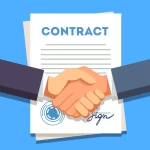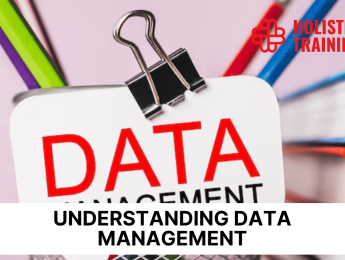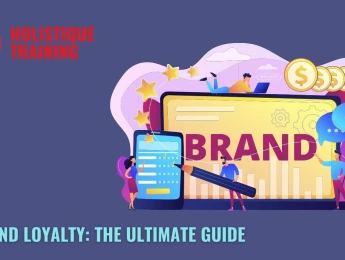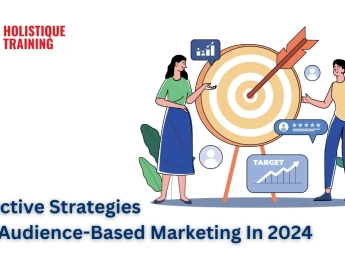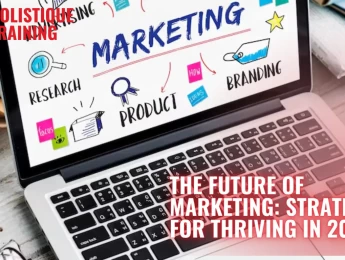Introduction
Effective contract management is crucial for optimizing organizational performance, minimizing risks, and ensuring compliance throughout the contract lifecycle. It involves not only the creation and execution of contracts but also the continuous monitoring and adjustment to meet evolving needs and challenges. This article aims to provide a comprehensive overview of best practices and strategies for improving contract management, including key areas such as streamlining processes, leveraging technology, and building a skilled team. By implementing these practices, organizations can enhance their contract management capabilities, achieve better outcomes, and drive overall success.
Understanding Contract Management
Understanding contract management is crucial for any organization that deals with contracts, as it encompasses the entire lifecycle of a contract, from initial creation to execution and eventual renewal or termination. At its core, contract management involves overseeing and administering contracts to ensure compliance, minimize risks, and maximize the value derived from contractual agreements.
Definition and Scope: Contract management refers to the process of systematically managing contract creation, execution, and analysis to optimize performance and mitigate risks throughout the contract lifecycle. The scope of contract management extends beyond simply tracking deadlines and deliverables; it involves strategic oversight and operational activities that align with the organization’s objectives and compliance requirements.
Key Components of Contract Management:
- Contract Creation: This includes drafting and negotiating terms that reflect the agreement between parties, ensuring that all necessary clauses and conditions are included to protect the interests of both sides.
- Contract Execution: Once the contract is agreed upon and signed, the execution phase involves implementing the agreed terms and conditions, monitoring performance, and ensuring adherence to deadlines and deliverables.
- Performance Monitoring: Regularly assessing whether both parties are meeting their obligations and identifying any deviations or issues that may arise during the contract's life.
- Compliance Management: Ensuring that all contractual obligations and regulatory requirements are met, which involves maintaining documentation, verifying compliance, and addressing any non-compliance issues.
- Amendments and Renewals: Managing any changes to the contract terms, whether due to evolving business needs or changes in regulations, and overseeing the renewal process to maintain ongoing agreements.
- Contract Closure: Evaluating the final performance, addressing any remaining issues or disputes, and formally closing the contract once all obligations are fulfilled.
Effective contract management ensures that contracts are not only executed efficiently but also managed proactively to mitigate risks and capitalize on opportunities for value creation.
Current Challenges in Contract Management
Current challenges in contract management can significantly hinder an organization’s efficiency and effectiveness, often leading to costly repercussions. Identifying and addressing these challenges is essential for improving overall contract management practices and ensuring better outcomes.
Common Issues Faced by Organizations:
- Lack of Standardization: Many organizations struggle with inconsistent contract templates and processes, which can lead to confusion, errors, and inefficiencies in contract creation and execution.
- Inadequate Visibility: Poor tracking and monitoring of contract status and key milestones can result in missed deadlines, overlooked obligations, and unfulfilled deliverables.
- Inefficient Document Management: Difficulty in accessing and managing contract documents due to outdated or fragmented systems can lead to delays and increased risk of non-compliance.
- Compliance Risks: Failure to ensure that all contractual terms and regulatory requirements are met can expose the organization to legal and financial penalties.
- Ineffective Communication: Poor communication between stakeholders and contract parties can result in misunderstandings, disputes, and delays in contract performance.
- Limited Analytics and Reporting: A lack of comprehensive analytics and reporting tools makes it challenging to evaluate contract performance, identify trends, and make data-driven decisions.
Impact of Poor Contract Management:
- Increased Costs: Inefficiencies, errors, and compliance issues often lead to increased operational costs, legal fees, and financial penalties.
- Reduced Contract Value: Failure to manage contracts effectively can result in missed opportunities for cost savings, performance improvements, and value realization.
- Reputation Damage: Poor contract management can damage relationships with clients, vendors, and partners, affecting the organization’s reputation and future business prospects.
- Operational Disruptions: Delays and mismanagement can disrupt operations, affecting the organization’s ability to deliver products or services on time and within budget.
- Legal and Compliance Risks: Non-compliance with contractual and regulatory obligations can lead to legal disputes, fines, and regulatory sanctions.
Addressing these challenges requires a strategic approach to contract management, incorporating best practices, modern technology, and robust processes to mitigate risks and enhance performance.
Best Practices for Effective Contract Management
To achieve effective contract management, organizations should adhere to best practices that streamline processes, enhance efficiency, and mitigate risks. Implementing these practices ensures that contracts are managed effectively throughout their lifecycle, optimizing performance and compliance.
Streamlining Contract Creation:
- Use Standardized Templates: Develop and use standardized contract templates to ensure consistency and reduce the time required to draft new agreements. This helps in minimizing errors and ensuring that all necessary terms and conditions are included.
- Automate Drafting: Utilize contract automation tools that can generate contract drafts based on predefined templates and clauses. This speeds up the creation process and reduces manual input errors.
- Collaborate Early: Engage all relevant stakeholders early in the drafting process to ensure that all parties’ requirements and expectations are incorporated from the beginning, reducing the need for extensive revisions.
Implementing Efficient Contract Review Processes:
- Establish Clear Review Procedures: Define and implement a structured contract review process that includes roles, responsibilities, and timelines. This ensures that contracts are reviewed thoroughly and in a timely manner.
- Use Checklists: Develop and use checklists to ensure that all critical elements of the contract are reviewed, including legal, financial, and operational aspects.
- Facilitate Collaboration: Leverage collaboration tools that allow multiple stakeholders to provide input and feedback on contract drafts simultaneously, streamlining the review process and ensuring comprehensive evaluation.
Leveraging Technology and Contract Management Systems:
- Adopt Contract Management Software: Implement a robust contract management system that offers features such as automated tracking, alerts, and centralized document storage. This enhances visibility, reduces manual errors, and improves overall efficiency.
- Utilize E-Signature Solutions: Use electronic signature tools to streamline the signing process, reduce turnaround times, and improve the security of contract execution.
- Integrate with Other Systems: Ensure that the contract management system integrates with other business systems, such as procurement, finance, and legal systems, for seamless data flow and better coordination.
Ensuring Compliance and Risk Management:
- Monitor Compliance Continuously: Implement processes and tools to regularly monitor compliance with contract terms and regulatory requirements. This includes tracking key milestones, deliverables, and performance metrics.
- Conduct Risk Assessments: Regularly perform risk assessments to identify potential risks associated with contracts, including legal, financial, and operational risks. Develop and implement strategies to mitigate these risks.
- Maintain Documentation: Keep comprehensive records of all contract-related documentation, including amendments, communications, and compliance reports. This facilitates audits, dispute resolution, and performance evaluations.
By adopting these best practices, organizations can significantly enhance their contract management processes, leading to improved efficiency, reduced risk, and greater overall value from their contractual agreements.
Strategies for Enhancing Contract Performance
To enhance contract performance effectively, organizations need to implement strategies that focus on clear objectives, regular oversight, and continuous improvement. These strategies ensure that contracts deliver the expected value and meet the desired outcomes.
Setting Clear Objectives and Metrics:
- Define Specific Goals: Establish clear, specific, and measurable objectives for each contract. This includes defining expected outcomes, performance targets, and key deliverables. Clear goals help ensure that all parties understand their responsibilities and what success looks like.
- Develop Performance Metrics: Identify and implement relevant metrics to measure contract performance. These metrics should align with the contract’s objectives and cover various aspects such as quality, timeliness, cost-effectiveness, and compliance.
- Communicate Expectations: Clearly communicate the objectives and performance metrics to all stakeholders involved in the contract. This alignment helps ensure that everyone is working towards the same goals and understands how performance will be evaluated.
Regular Monitoring and Auditing:
- Implement Monitoring Systems: Use contract management systems and tools to track performance against established metrics and milestones. Regular monitoring helps identify issues early and ensures that the contract stays on track.
- Conduct Performance Reviews: Schedule regular performance reviews with all relevant parties to assess progress, address any issues, and discuss potential improvements. These reviews provide an opportunity to evaluate how well the contract is meeting its objectives.
- Audit Contracts Periodically: Perform periodic audits to ensure compliance with contract terms and regulatory requirements. Audits help uncover any discrepancies, non-compliance issues, or areas needing improvement.
Continuous Improvement Practices:
- Analyze Performance Data: Regularly analyze performance data and feedback to identify trends, successes, and areas for improvement. Use this analysis to make informed decisions and adjustments to enhance contract performance.
- Implement Feedback Loops: Establish mechanisms for collecting feedback from stakeholders, including vendors, clients, and internal teams. Use this feedback to identify areas for improvement and make necessary changes to contract management practices.
- Adopt Best Practices: Stay updated with industry best practices and incorporate them into contract management processes. Continuous learning and adaptation ensure that contract management practices remain effective and relevant.
- Foster a Culture of Improvement: Encourage a culture of continuous improvement within the organization. Promote proactive problem-solving, innovation, and a willingness to adapt and refine contract management strategies as needed.
By setting clear objectives and metrics, regularly monitoring and auditing performance, and embracing continuous improvement practices, organizations can significantly enhance their contract performance, resulting in better outcomes, reduced risks, and increased value from their contracts.
Training and Development for Contract Management Teams
Training and development for contract management teams are essential to ensure that team members possess the skills and knowledge required to manage contracts effectively. This process involves identifying skill gaps, developing targeted training programs, and building a competent team capable of handling complex contract management tasks.
Identifying Skill Gaps:
- Conduct Skills Assessments: Perform a comprehensive skills assessment to evaluate the current competencies of the contract management team. This includes reviewing individual skills, knowledge areas, and proficiency in contract management processes.
- Analyze Job Requirements: Compare the team’s skills with the specific requirements and expectations of the contract management role. Identify areas where additional training or development is needed to meet these requirements.
- Seek Feedback: Gather feedback from team members, managers, and stakeholders to understand perceived skill gaps and areas for improvement. This feedback can provide valuable insights into the specific challenges and training needs of the team.
Developing Training Programs:
- Design Targeted Training Modules: Create training programs that address the identified skill gaps and focus on key areas such as contract drafting, negotiation, compliance, risk management, and performance monitoring. Tailor the content to the needs of the team and the complexity of the contracts they manage.
- Utilize Various Training Methods: Implement a mix of training methods, including workshops, e-learning courses, simulations, and on-the-job training. This approach accommodates different learning styles and ensures comprehensive coverage of essential skills.
- Incorporate Real-World Scenarios: Use case studies and real-world scenarios to provide practical experience and enhance problem-solving skills. This helps team members apply theoretical knowledge to actual contract management situations.
- Provide Ongoing Training: Offer continuous learning opportunities to keep the team updated on industry trends, new technologies, and best practices in contract management. Regular training helps maintain and improve skills over time.
Building a Competent Team:
- Foster a Collaborative Environment: Encourage teamwork and collaboration among team members to share knowledge, experiences, and best practices. A collaborative environment helps build a cohesive team and enhances overall contract management capabilities.
- Develop Leadership Skills: Invest in leadership development programs to build strong leaders within the contract management team. Effective leaders can mentor and guide other team members, driving improvements in performance and management practices.
- Encourage Professional Development: Support team members in pursuing relevant certifications, advanced courses, and professional memberships. This investment in professional development enhances their expertise and contributes to the overall competence of the team.
- Monitor Progress and Provide Support: Regularly evaluate the progress of team members and provide ongoing support and resources to help them succeed. Recognize achievements and address any ongoing challenges to ensure continuous growth and development.
By focusing on identifying skill gaps, developing targeted training programs, and building a competent team, organizations can enhance their contract management capabilities, leading to more effective and efficient management of contracts and better overall outcomes.
Tools and Resources
When improving contract management processes, leveraging the right tools and resources is crucial for efficiency and effectiveness. Here’s a guide to recommended contract management software and useful templates and checklists that can streamline contract management activities:
Recommended Contract Management Software:
- DocuSign CLM:
- Features: End-to-end contract lifecycle management, automated workflows, e-signatures, document storage, and compliance tracking.
- Benefits: Simplifies contract creation, negotiation, and execution; integrates with other business systems; enhances visibility and compliance.
- Agiloft:
- Features: Customizable contract management system, automated contract creation, advanced reporting and analytics, and robust compliance management.
- Benefits: Highly configurable to fit various organizational needs; provides deep insights into contract performance; improves efficiency through automation.
- Icertis Contract Management:
- Features: Comprehensive contract lifecycle management, AI-driven insights, risk management, and performance tracking.
- Benefits: Facilitates complex contract management with advanced analytics and AI capabilities; enhances compliance and risk management.
- Coupa Contract Management:
- Features: Integration with procurement and financial systems, contract authoring, compliance tracking, and performance monitoring.
- Benefits: Streamlines contract management processes; ensures alignment with procurement and financial goals; improves contract visibility.
- ContractWorks:
- Features: User-friendly interface, document repository, automated alerts, contract search and reporting.
- Benefits: Easy to use and implement; offers robust features for document management and compliance tracking; affordable for small to mid-sized organizations.
Table: Overview of Recommended Contract Management Software
Tool | Features | Benefits |
DocuSign CLM | End-to-end lifecycle management, automated workflows, e-signatures, document storage, compliance tracking | Simplifies contract processes, integrates with systems, enhances visibility and compliance |
Agiloft | Customizable system, automated creation, advanced reporting, compliance management | Configurable, provides deep insights, improves efficiency through automation |
Icertis Contract Management | Comprehensive management, AI-driven insights, risk management, performance tracking | Facilitates complex management, enhances compliance and risk management |
Coupa Contract Management | Integration with procurement/financial systems, authoring, compliance tracking, performance monitoring | Streamlines processes, aligns with procurement/financial goals, improves visibility |
ContractWorks | User-friendly interface, document repository, automated alerts, search and reporting | Easy to use, robust features for document management, affordable for small to mid-sized organizations |
Useful Templates and Checklists:
- Contract Creation Checklist:
- Purpose: Ensure that all necessary elements are included in the contract draft.
- Includes:
- Parties involved
- Scope of work or deliverables
- Payment terms and conditions
- Confidentiality and non-disclosure clauses
- Termination and renewal provisions
- Compliance and regulatory requirements
- Contract Review Checklist:
- Purpose: Guide the review process to ensure all critical aspects are evaluated.
- Includes:
- Verification of contract terms and conditions
- Consistency with initial agreements
- Legal and regulatory compliance
- Risk assessment and mitigation strategies
- Review of performance metrics and deliverables
- Contract Performance Monitoring Template:
- Purpose: Track and assess the performance of contracts over time.
- Includes:
- Key performance indicators (KPIs)
- Contract milestones and deadlines
- Performance metrics (e.g., quality, timeliness, cost)
- Issues and resolution tracking
- Feedback and improvement actions
- Contract Renewal Checklist:
- Purpose: Ensure all aspects of the contract renewal process are addressed.
- Includes:
- Review of current contract terms and performance
- Evaluation of renewal terms and conditions
- Negotiation and amendment considerations
- Communication with stakeholders
- Documentation and execution of renewal agreements
- Compliance Checklist:
- Purpose: Ensure adherence to regulatory and contractual requirements.
- Includes:
- Review of regulatory requirements
- Verification of compliance with contract terms
- Documentation of compliance activities
- Risk management and mitigation strategies
- Regular compliance audits
By utilizing recommended contract management software and employing useful templates and checklists, organizations can enhance their contract management processes, ensure compliance, and improve overall efficiency and effectiveness in managing contracts.
Conclusion
In conclusion, effective contract management is pivotal for achieving organizational success by ensuring that contracts are executed efficiently, compliance is maintained, and risks are mitigated. This article has highlighted the importance of streamlining contract creation, implementing efficient review processes, leveraging technology, and fostering a culture of continuous improvement. Additionally, it emphasized the need for ongoing training and development to build a competent contract management team. As a next step, organizations should assess their current contract management practices, adopt the recommended best practices and tools, and establish a plan for continuous monitoring and improvement. By doing so, they can enhance their contract management processes, drive greater value from their agreements, and achieve their strategic objectives.




